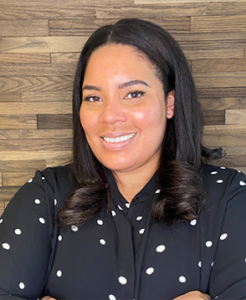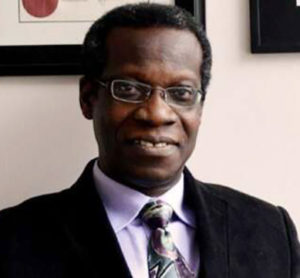By Lincoln DePradine

The Delta COVID variant has been described as a “beast’’ and concern has been expressed at the number of Black Canadians that still are unvaccinated, with some appearing not to be taking the deadly virus seriously.
“Delta is setting its own rules,’’ said Dr Akwatu Khenti, a university professor with a PhD in health and policy equity. “Delta is wreaking havoc on many countries; it’s much more infectious than the initial COVID-19 virus and it’s easier to transmit.’’
Since the outbreak of the COVID pandemic last year, the virus has infected 219 million people worldwide. Total deaths have been estimated at 4.55 million.
Grenada now is one of the most infected countries per capita. The country has recorded more than 4,000 COVID cases and has moved from one death in August to the current death toll in excess of 75.
In Ontario, the province has reported more than 27,400 COVID-related deaths.
Despite the sickness and death caused by COVID, “people are not masking; people are acting as though the pandemic is over and that’s very worrying,’’ Khenti remarked while speaking at an online workshop for educators. It was facilitated by the Ontario Alliance of Black School Educators (ONABSE) and the Black Scientists’ Task Force on Vaccine Equity.
The workshop, moderated by ONABSE president Warren Salmon, was titled, “Having Difficult Conversations about the Vaccine with Parents and Guardians of Black Children and Youth’’.
Organizers said that among the workshop objectives were addressing “all the key public debates, as well as misinformation, that are circulating on social media’’ about COVID vaccines; and also providing “critical background and scientific evidence on COVID vaccines’’ that would enable educators “to be ready for all the questions parents and families will bring in the next school year, especially parents of Black children and adolescents.’’

“We want our Black educators, like our Black health professionals, to be fully informed about the risks of the vaccines and the risks of COVID, so that they can be ambassadors to their families. The information isn’t meant to stay on a shelf but to share with colleagues and friends and family members,’’ said Khenti, special advisor to the City of Toronto’s targeted COVID equity action plan.
He also chairs the city-appointed Black Scientists’ Task Force. In February, the task force embarked on a series of townhall meetings as part of its mandate to develop “public health recommendations to address Black community concerns’’ about COVID-19 vaccines.
In a final report to the city in June, task force members included several recommendations and appeals, such as asking the Ontario government to support “Black mental health programs across municipal jurisdictions in the province, and to provide a consistent supply of vaccines to Black communities’’.
The attempt to get people vaccinated against COVID-19 is a “public health measure’’, said Dr Candice Todd, a naturopathic doctor with expertise in disease prevention, and one of the presenters at the educators’ virtual workshop.
“The vaccines, Todd said, “were not developed to prevent you from getting COVID; it was really to prevent you from getting serious disease and death.’’
Other presenters, drawn from the medical community, were Dr Isaac Odame and Dr David Burt.
“The benefits of the vaccine more than outweigh the risks associated with being vaccinated,’’ said Burt, an immunologist, research scientist and consultant.
“There are rare adverse reactions, but essentially, the vaccines are very, very safe; as safe as any other vaccine that has been developed. This should encourage people to take the vaccine,’’ Burt added.
From the very onset of the pandemic, the Black community has been “disproportionately affected by COVID-19’’, which has claimed lives and also has left many families in financial distress; and has “increased the risks of mental health challenges and mental health problems’’ for working families and schoolaged children, Khenti said.
“We’ve died at twice the rate of White people to COVID and we’ve been hospitalized at about three times the rate in the population,’’ he said.
A year ago, people of African descent were about 30 percent of all COVID cases in Toronto. The number has decreased considerably because of the work of “many community organizations, many churches, many city advocates and many community healthcare centres that have worked assiduously to bring it down to about 13 percent of the cases now’’, Khenti said.
However, he expressed fear that COVID cases in the Black community are “at a huge risk of going back up’’, because not enough African-Canadians are vaccinated.
Khenti urged Black community members to get tested and vaccinated against COVID-19.
“We’re at high risk for the Delta variant,’’ he said. “Right now, the tests are covered; but, at some point, those tests are going to be privatized and you’re going to have to bear the cost of those tests.’’
The Delta variant, when compared to the original COVID-19 virus, “is a different beast; it’s more contagious. It seems to be more deadly and, for that reason, the game has changed’’, said Odame, head of the Haematology Section at The Hospital for Sick Children (SickKids).
Black Canadians are “more susceptible to COVID infections and are dying more from COVID infections’’, and information sessions such as the educators’ workshop are designed to “break that disparity and improve outcomes for people of African descent’’, said Odame, who also is medical director of the Global Sickle Cell Disease Network at SickKids.
“Let us protect each other and confront all the myths and misinformation and hope that our people, if they make choices, their choices will be based on the science, based on solid information, so that they can do what is best for them and their families,’’ Odame said.


